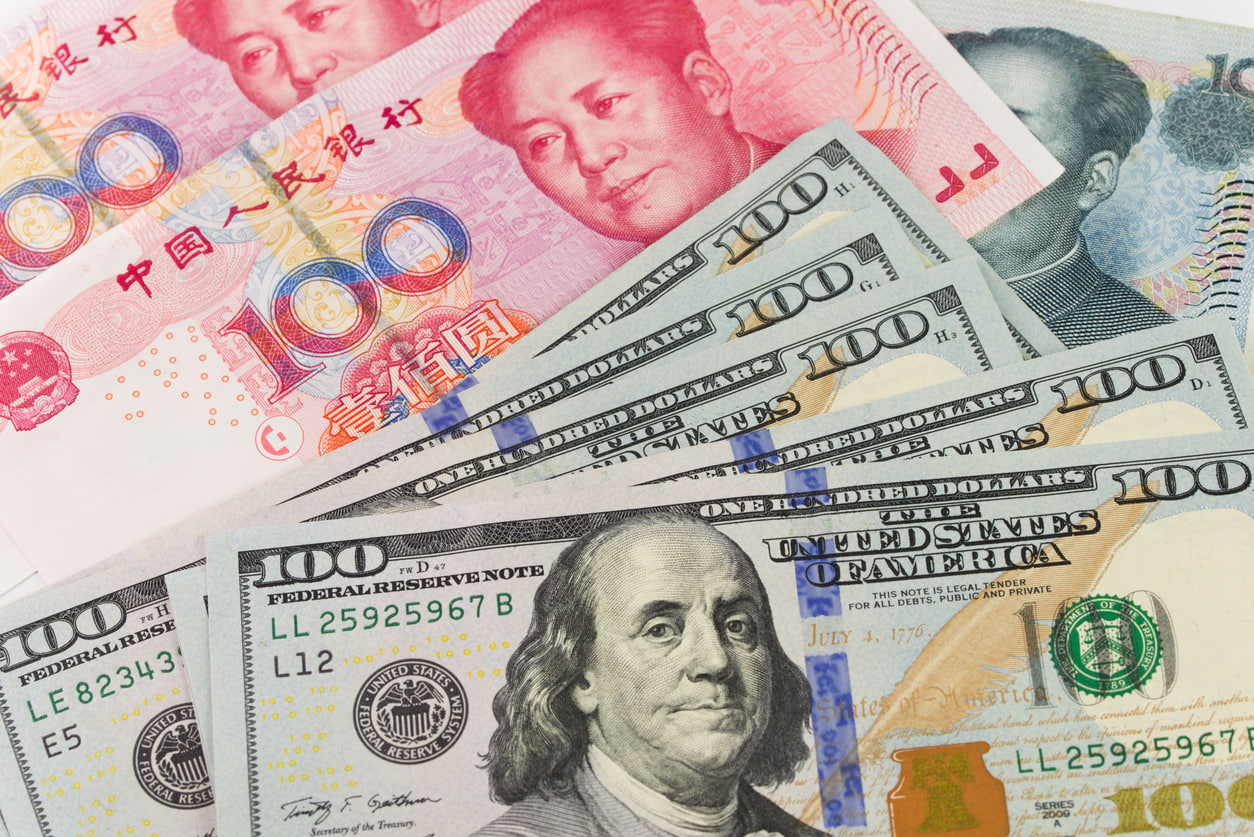Trump's Tariff Threats Against the EU: A Deep Dive into Transatlantic Trade Tensions
Meta Description: Navigating Trump's tariff threats against the EU, analyzing the transatlantic trade imbalance, energy dependencies, and potential economic ramifications. Explore the geopolitical implications and future of EU-US relations. #TrumpsTariffs #EUTrade #TransatlanticRelations #EnergySecurity #Geopolitics
The air crackled with tension. Donald Trump, the then-President-elect, loomed large, brandishing the threat of hefty tariffs against the European Union. It wasn't just another political squabble; it was a potential earthquake threatening to topple the delicate balance of transatlantic trade and energy security. This wasn't some minor trade spat; this was a full-blown geopolitical showdown with far-reaching consequences for both sides of the Atlantic. The stakes were unbelievably high: global economic stability, energy independence, and the very fabric of the transatlantic partnership were hanging in the precarious balance. This wasn't just about dollars and cents; it was about power, influence, and the future of international cooperation. The looming tariffs weren't just numbers on a spreadsheet; they were a symbol of a fractured relationship, a chilling harbinger of potential global economic chaos. You'll be shocked by the intricate web of dependencies and the potentially devastating consequences of a full-blown trade war. Let's delve into the complexities of this high-stakes game of international trade diplomacy.
Trump's Tariff Threats and the EU's Response
The situation was, to put it mildly, explosive. Trump's pronouncements on social media – a favored method for delivering both policy pronouncements and potent barbs – sent shockwaves across the EU. His ultimatum was stark: drastically increase purchases of American oil and liquefied natural gas (LNG), or face the full force of his tariff wrath. This wasn't a subtle negotiation; it was a blatant attempt to leverage energy dependence for trade advantage. EU spokesperson Olof Gill responded with a measured but firm counterpoint, highlighting the significant services trade surplus the US enjoys with the EU. He emphasized the EU's willingness to negotiate but made it clear that bullying tactics wouldn't work. The EU wasn't going to be pushed around; they intended to engage in a reasoned dialogue while safeguarding their own interests. This was a strategic dance, a careful balancing act between diplomacy and defiance.
The EU's response wasn't simply reactive; it was proactive. While acknowledging the substantial trade deficit in goods—a whopping €155 billion in 2024, according to Eurostat—the EU emphasized the significant US services trade surplus. This nuance was crucial in highlighting the complexity of the economic relationship. It was a reminder that trade wasn't a one-way street; the US benefited significantly from the EU market, and a trade war risked harming both economies.
The energy angle further complicated the situation. In the first quarter of 2024, the US supplied a staggering 47% of the EU's LNG imports and 17% of its oil imports. This stark dependence made the EU vulnerable to energy blackmail, a reality that couldn't be ignored. The threat of tariffs was a clear attempt to exploit this vulnerability, creating a dangerous precedent for future trade negotiations. The geopolitical implications were enormous, putting significant pressure on the already strained relationship between the EU and the US.
Analyzing the Transatlantic Trade Imbalance
The trade imbalance between the US and the EU is a multifaceted issue that goes beyond simple import and export figures. While the US had a significant trade deficit in goods, this was offset by a considerable surplus in services. This highlights the limitations of focusing solely on manufactured goods when assessing the overall economic relationship. It's a bit like looking at only half the picture; you need to consider the entire picture to get a full understanding. Many experts argue that the focus on a "trade deficit" is often misleading and doesn't capture the true complexity of international trade. The services sector, encompassing everything from financial services to tourism, plays a vital role and often gets overlooked in simplistic analyses.
Furthermore, the nature of the trade deficit deserves scrutiny. Are the goods imported from the EU primarily high-value manufactured goods, or are they more heavily weighted towards lower-value items? This distinction is crucial in determining the overall economic impact. Even a large trade deficit might not be a serious concern if the imports are mainly high-value goods that boost productivity and innovation. A deeper dive into the data is needed to paint a complete picture. We need to move beyond simple headlines and delve into the granular details to understand the true nature of this complex trade relationship. Ignoring the nuances would be a significant oversight, potentially leading to flawed policy decisions.
Moreover, it's crucial to consider the broader macroeconomic context. The exchange rates, overall economic growth rates, and global economic conditions all play a significant role in shaping trade flows. Simply attributing a trade deficit to a single cause is an oversimplification. It's a complex equation with numerous variables, and any analysis must consider the whole picture.
Energy Security and Geopolitical Implications
Trump’s tactics highlighted a critical issue: energy security. Europe's reliance on US energy supplies created a vulnerability that Trump attempted to exploit. This reliance wasn't a mere economic detail; it had profound geopolitical implications. Europe's energy strategy needed a fundamental reassessment. Diversifying energy sources became paramount, not just to reduce reliance on any single supplier but also to bolster energy independence and enhance resilience against geopolitical pressure. The episode served as a stark reminder of the interconnectedness of energy and geopolitics.
The EU recognized the need for a more robust and diversified energy strategy. Investing in renewable energy sources, strengthening partnerships with alternative suppliers, and improving energy efficiency became top priorities. This wasn't just about reducing reliance on the US; it was about creating a more resilient and independent energy system. The long-term implications would involve significant investments in infrastructure and a shift towards a more sustainable energy future. This strategic shift would not only enhance energy security but also contribute toward environmental sustainability. This was a strategic imperative, a matter of protecting Europe's long-term interests.
The Economic Ramifications of a Trade War
The potential consequences of a full-blown trade war between the US and the EU were dire. Economists warned of increased inflation, disrupted supply chains, and reduced economic growth. The automotive industry, for example, would be particularly vulnerable, given the extensive transatlantic trade in vehicle parts and components. Such a trade war would have cascaded effects throughout both economies, impacting a wide range of industries and consumers.
Moreover, the impact on consumer prices would be significant. Higher tariffs would translate directly into increased costs for goods and services, squeezing consumers' disposable income. The already-strained international economic landscape would be further burdened, potentially leading to a global economic downturn. The costs extend beyond direct economic impacts; potential social unrest stemming from economic hardship would be an added concern.
The disruption of supply chains would ripple through various sectors. Manufacturing industries, heavily reliant on international trade, would be particularly vulnerable to delays and disruptions. This could lead to production slowdowns, job losses, and further economic instability. The ripple effects could potentially cascade throughout the global economy.
Frequently Asked Questions (FAQs)
Q1: What was the main reason behind Trump's threat of tariffs on the EU?
A1: Trump primarily aimed to leverage the EU's energy dependence on the US to force increased purchases of American oil and LNG, ostensibly to address the trade imbalance in goods. His actions were widely seen as an aggressive trade tactic, using energy security as a bargaining chip.
Q2: Did the EU respond to Trump's threats?
A2: Yes, the EU responded by highlighting the significant US services trade surplus with the EU and emphasizing its willingness to negotiate, but not under duress. They also initiated steps to diversify their energy sources and strengthen their energy security.
Q3: What are the potential economic consequences of a trade war between the US and the EU?
A3: A trade war could lead to increased inflation, disrupted supply chains, reduced economic growth, and higher consumer prices, impacting various sectors and potentially causing a global economic slowdown.
Q4: How did the energy dependency of the EU impact the situation?
A4: The EU's dependence on US energy supplies made it vulnerable to pressure from Trump. This vulnerability underscored the need for the EU to diversify its energy sources and enhance its energy security.
Q5: What steps did the EU take to address its energy vulnerability?
A5: The EU accelerated its efforts to diversify its energy sources, invest in renewable energy, and strengthen partnerships with alternative energy suppliers to reduce its reliance on the US.
Q6: What are the long-term implications of this trade dispute?
A6: This dispute highlighted the complexities of transatlantic relations and the importance of energy security and diversification. It also underscored the need for careful consideration of the economic and geopolitical implications of trade policies and leveraging energy supplies as a means of exerting political pressure.
Conclusion
Trump's tariff threats against the EU exposed the intricate interplay of economics, geopolitics, and energy security in transatlantic relations. The episode served as a stark reminder of the need for diversified energy sources, robust trade strategies, and careful negotiation in international affairs. While the immediate threat may have subsided, the underlying issues remain. The future of transatlantic relations will depend on both sides' ability to navigate these challenges through diplomacy, mutual respect, and a commitment to a stable and prosperous global economy. The episode serves as a case study in the complexities of international relations and the importance of strategic foresight in a rapidly changing global landscape. The world needs to learn from this experience and work towards a more stable and collaborative future.



